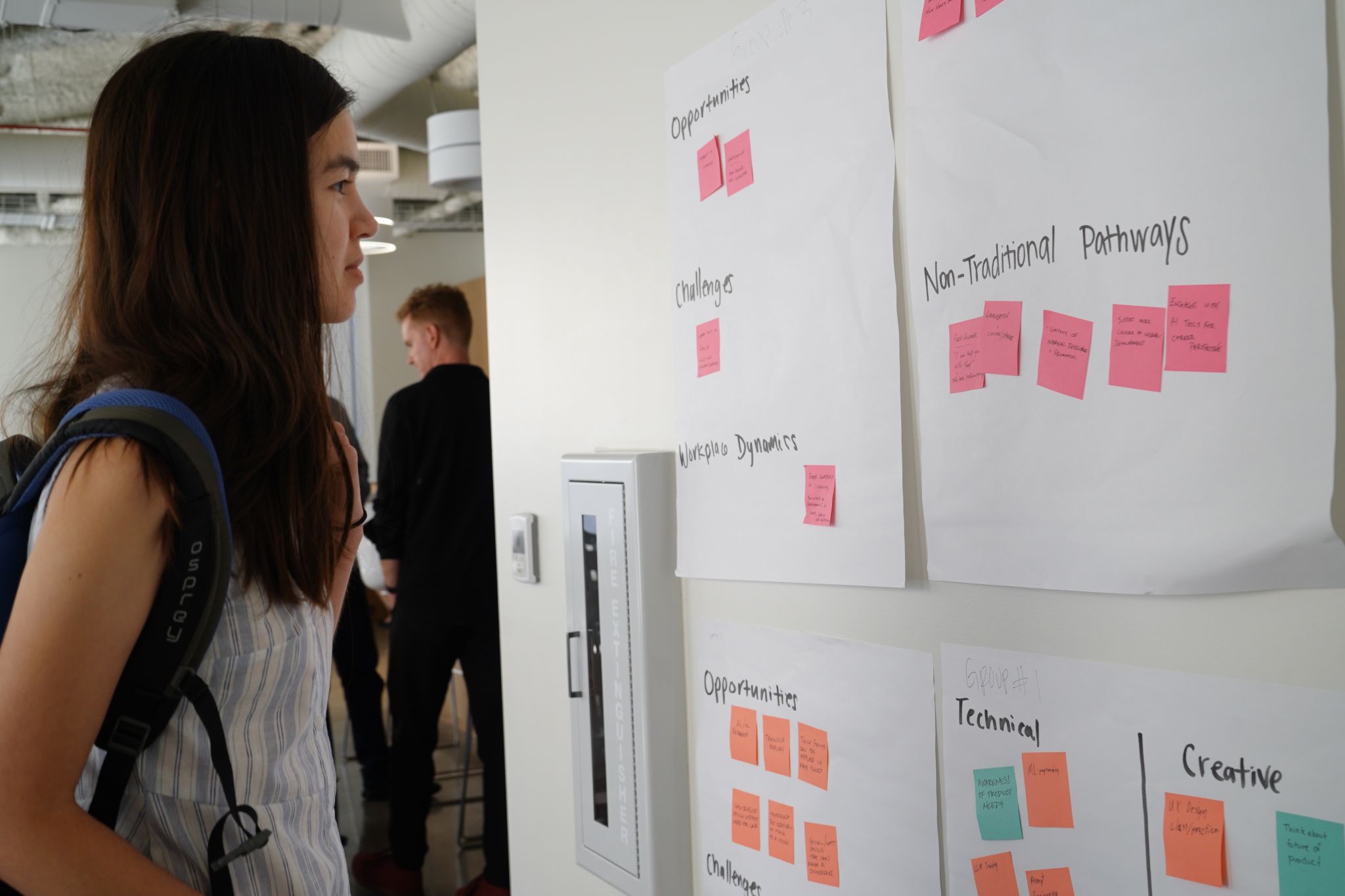Navigating the AI Era: A Gen Z Guide to Thriving in Tomorrow’s Workforce
As you step into a world where artificial intelligence (AI) is reshaping industries, it’s natural to wonder: How will you carve out your career path in this new landscape? Here are some insights from a recent SFTechWeek event Ourmedia hosted in partnership with Jewish Vocational Services (JVS) that can help you gear up for success.
Facing the AI Wave: What’s the Buzz?
AI is everywhere—from automating tasks to transforming entire job roles. While it boosts productivity for some, it raises job security concerns for many. Did you know that 62% of young workers worry about job displacement due to AI, yet only 4% use AI tools daily? This gap highlights the need to get more comfortable with AI technologies to stay competitive.
1. Building Your Skill Arsenal
To stand out in an AI-driven world, you need a mix of technical knowledge and interpersonal skills:
- Tech Skills: Understanding AI basics, learning programming languages, and gaining hands-on experience with AI tools can help you stand out. Gen Z professionals have the opportunity to be the “first followers” of AI; becoming proficient in the use of various AI tools means that you can be a leader in your workplace when it comes to integrating them.
- Soft Skills: Problem-solving, effective communication, and adaptability are crucial. These skills enable you to work seamlessly with both human and AI teammates. As AI automation increases, these core skills will make you adaptable to changing roles and work landscapes while deepening your ability to leverage AI creatively and effectively.
2. Exploring New Career Paths
Traditional career routes might not cut it anymore. It’s important to build a set of experiences that demonstrate your skills and abilities in action. Here are some pathways to consider:
- Apprenticeships and Internships: These offer real-world experiential learning and a chance to work with AI technologies firsthand, enabling you to build a set of experiences and competencies you can speak to when applying for future roles.
- Volunteering: Nonprofits and startups often welcome fresh perspectives and can provide valuable exposure to AI projects, and may lead to a paid role in the future.
- Side Projects: Starting your own AI-related project or contributing to open-source initiatives can showcase your initiative and skills, and encourage personal growth with a healthy amount of room to fail, succeed, and be challenged.
3. Embracing Lifelong Learning
The AI field is evolving rapidly. To keep up, you should:
- Stay Curious: Regularly explore new AI trends and tools to stay ahead. One way to dive into the conversation is to use chatbots or search engines to explore different articles, videos, and resources sharing recent news about AI for work and learning; you can improve your prompting skills through this research while building a foundation for understanding AI in various contexts and use cases.
- Network: Attend industry events, join online forums, and connect with mentors in your community to gain insights and stay inspired. As you look ahead to the future, think about the connections that will help guide you, not just the roles and skills that will be relevant. There is so much to learn from the people that have come before you, and these folks will often later become the people you reach out to when thinking about a career transition or looking for support on a project.
The Bottom Line
The AI era brings both challenges and opportunities. By proactively building a diverse skill set and staying adaptable, you can not only navigate but also thrive in this dynamic job market. Remember to prioritize finding mentors and building a network of support alongside your efforts to build a balanced set of skills and core experiences. Embrace the change, and position yourself to succeed in the future of work!

